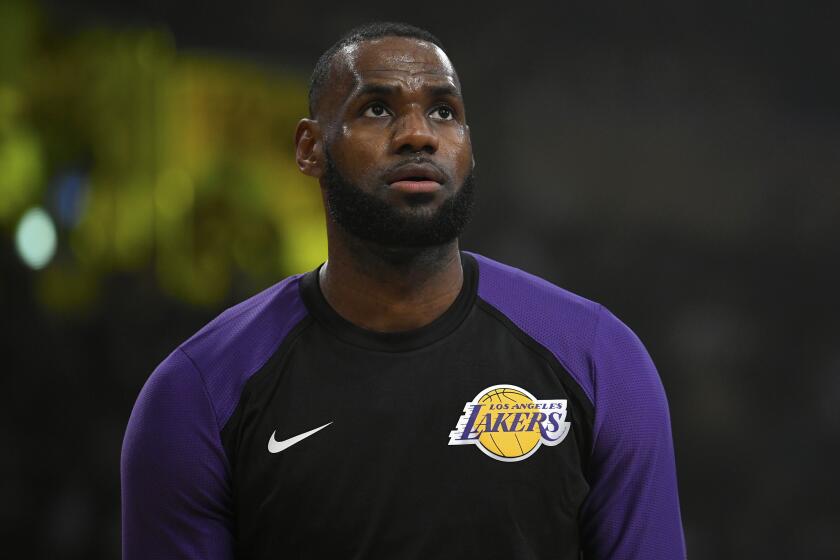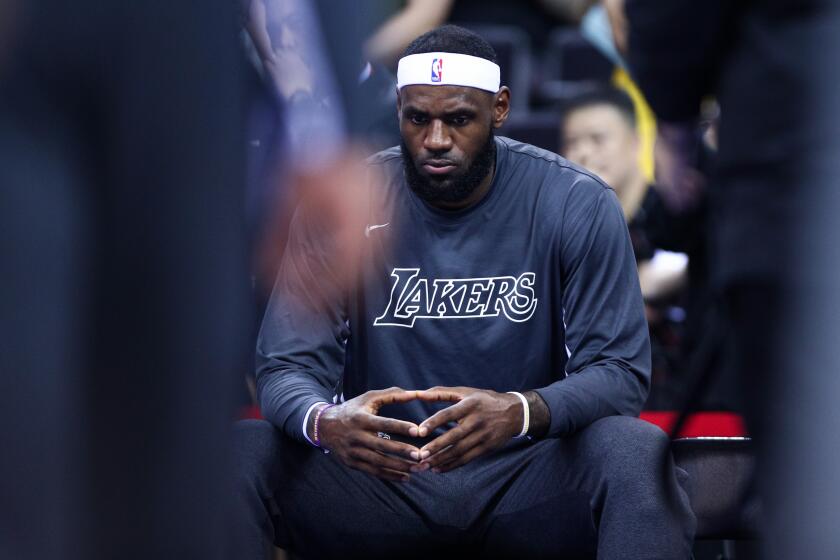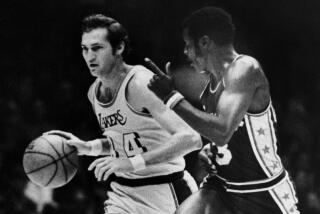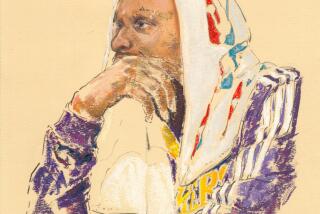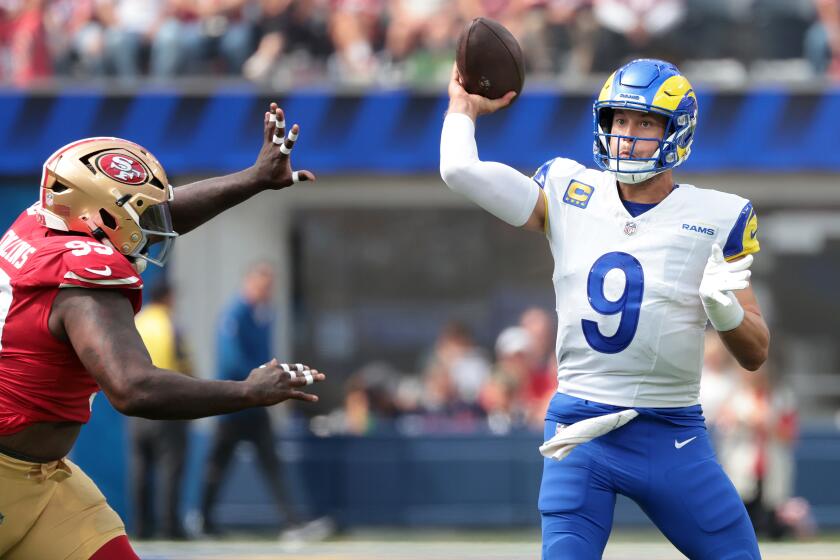Commentary: NBA offered a window to the world. For many Chinese, it still can
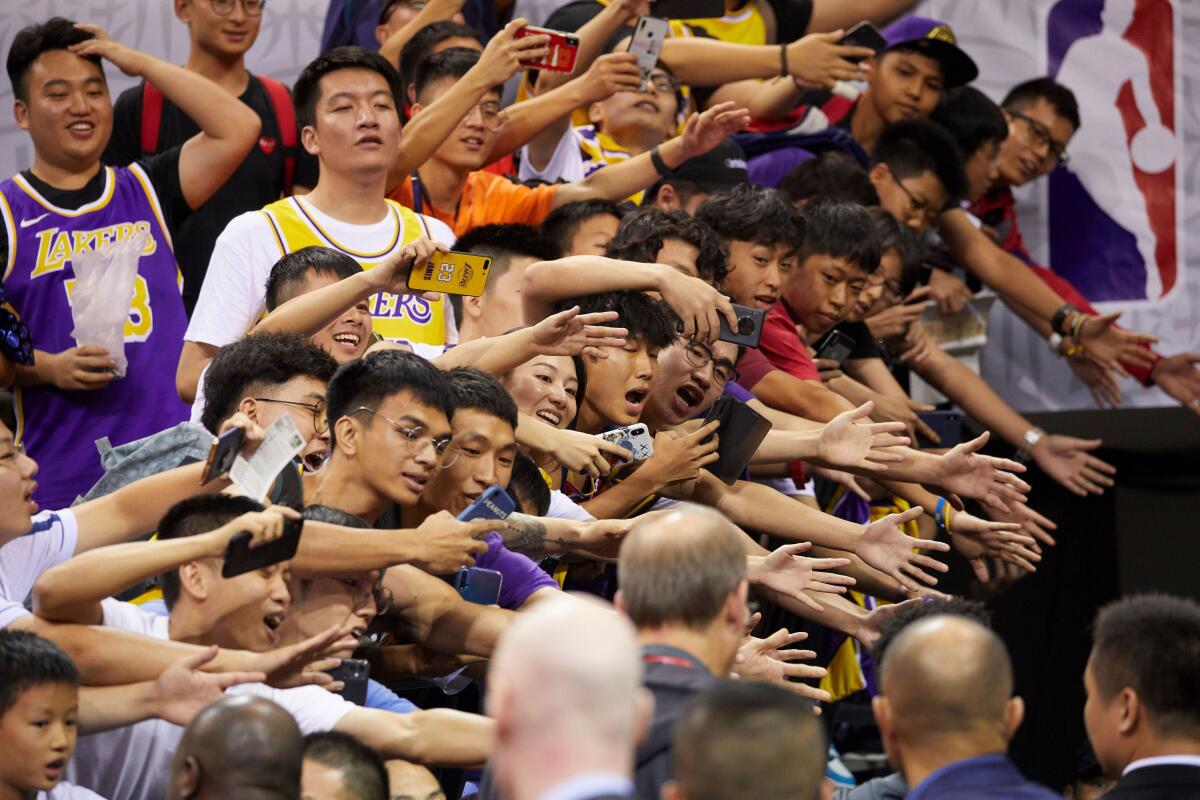
- Share via
Growing up in a small city in central China, I had limited access to the outside world.
I didn’t know what a Big Mac tasted like until I traveled with my uncle to the southern city of Shenzhen when I was in high school. Despite my daily addiction to Coca Cola today, my parents told me I never liked “the foreign drink” as a child because I said it tasted like “Chinese medicine.”
But when state broadcaster China Central Television (CCTV) started to show NBA games on TV in the early 1990s, everything began to change. Slowly but surely, the league helped introduce a whole new world out there. It’s a period in my life I’ve been contemplating recently because of the furor created by Houston Rockets general manager Daryl Morey’s tweet supporting protesters in Hong Kong.
For starters, I was amazed when I saw NBA stars like Michael Jordan jump so high and dunk over two or three defenders. Despite being considered a “weak kid” who struggled with various sicknesses during my childhood, I decided to pick up a basketball and tried to imitate his Airness’ every move on the court, pretending that sticking my tongue out could help me score more in pick-up games.
Watching my favorite NBA stars meant staying up until midnight on Saturdays, when the weekly highlights were shown on CCTV, because most games were in the morning when I had to be in school.
In addition to teaching me how to play basketball, the NBA opened a window to pop culture in the United States. I got to know who Michael Jackson and Bugs Bunny were, because they appeared with Jordan in music videos and movies.
Calling out LeBron James’ hypocrisy on his China remarks doesn’t mean the NBA plays a clean game in China.
As a high school student who had been learning English for only a few years, I could barely understand anything when I opened the homepage of NBA.com the first time. But still, for the love of the game, I was excited just seeing pictures of my favorite players.
Gradually, with the help of English dictionaries, I learned words like layup, rebound and alley-oop. From not being able to read a simple game recap, I started to understand more complicated terms such as the pick-and-roll or the triangle offense, run by the Chicago Bulls under Phil Jackson.
As I was able to read more NBA news in English, my improved language skills also allowed me to discover more basketball-related American culture. Similar to many Chinese basketball fans, I started to buy basketball sneakers and even tried to grow my hair longer so I could have cornrows like Allen Iverson.
Eventually, I became a reporter for a Chinese publication covering the Lakers and Clippers in Los Angeles. In addition to being able to watch NBA games live at the Staples Center, I was fortunate to interview almost all the league’s top stars at the time, including Kobe Bryant, LeBron James and Carmelo Anthony.
The more I covered the NBA, the more I understood the league was about more than basketball. Whenever star players spoke up about social issues in the U.S., I started to pay attention and read more about those topics.
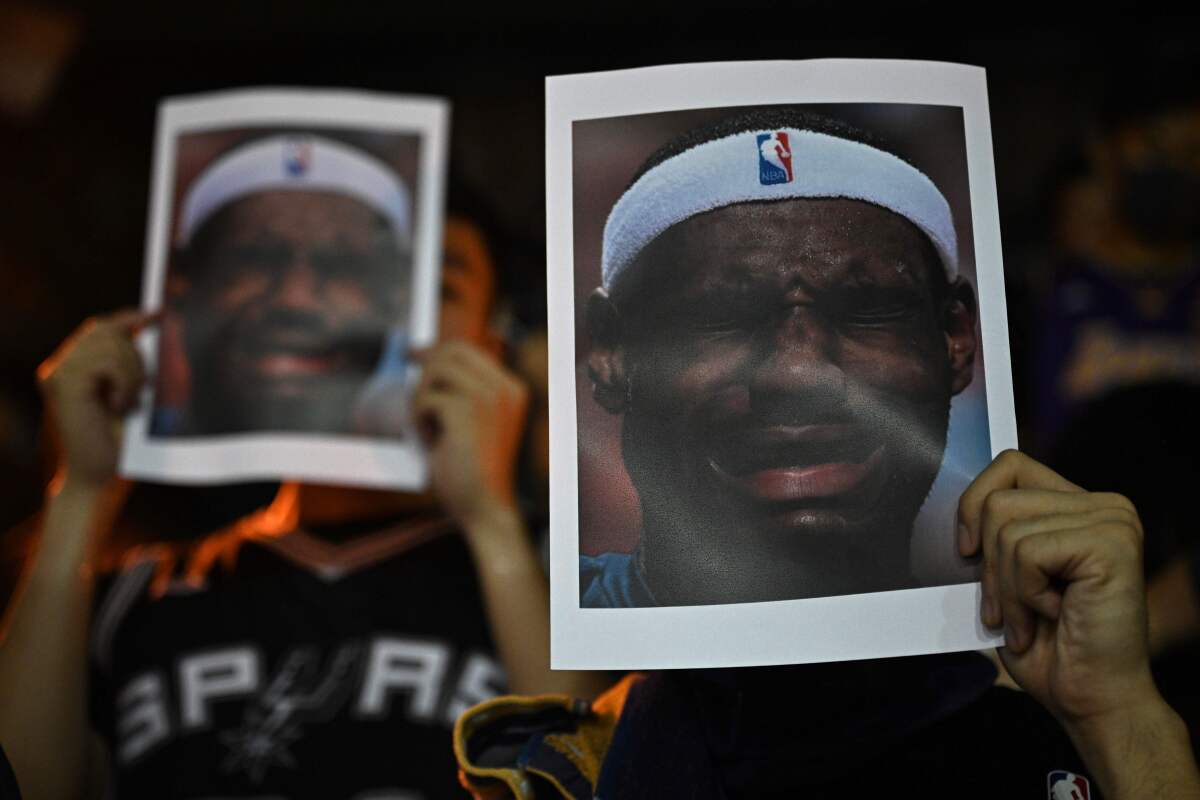
After James and his teammates on the Miami Heat wore hoodies defying a ban from the NBA in 2012, I became curious and started to read about the Trayvon Martin case. When Bryant and James wore “I can’t breathe” T-shirts during warm-ups in 2014, I looked up the disturbing video showing the last moments of Eric Garner’s life.
After the league decided to move its All-Star Game away from Charlotte, I tried to read more about LGBT rights and understand why NBA stars were taking such a stance.
My Chinese friends and I often joked that how much we knew about U.S. cities depended solely on whether the city had an NBA team. We learned about smaller cities such as San Antonio, Milwaukee and Denver mostly because the local NBA teams and basketball stars who played for those teams.
The NBA always has been a window for many Chinese fans to understand the U.S., its culture and its key social values, such as the importance of individual liberties.
In criticizing Houston Rockets general manager Daryl Morey, LeBron James revealed that even the sports world’s leading social equality warrior has his limits.
That is why when NBA stars and coaches, who are often vocal about social issues in the U.S., chose to stay silent on the ongoing controversy related to Hong Kong and harsh nationalistic responses from Chinese authorities, they missed a great opportunity to engage with Chinese basketball fans who may be open to alternative point of views.
Despite the overwhelming anger and backlash from China, primarily pushed by the Chinese state media, most ordinary fans had paid little attention to what was taking place in Hong Kong before the current crisis. The nationalistic sentiment was mostly driven by the Chinese authorities’ agenda to swing public opinion toward discrediting the pro-democracy nature of the movement in the semi-autonomous region.
While denouncing Morey’s tweet as a violation of China’s sovereignty, most of the angry basketball fans in China didn’t even know what five demands were being made by protesters in Hong Kong, or whether they were indeed seeking independence. Even Brooklyn Nets owner Joe Tsai, who has massive business interests in China, tried to repeat the narrative pushed by Chinese authorities by labeling the actions in Hong Kong was a “separatist movement.”
Under the tightly controlled media environment and heavy internet censorship, many basketball fans in China didn’t have the opportunity or the curiosity to seek an alternative view about the events.
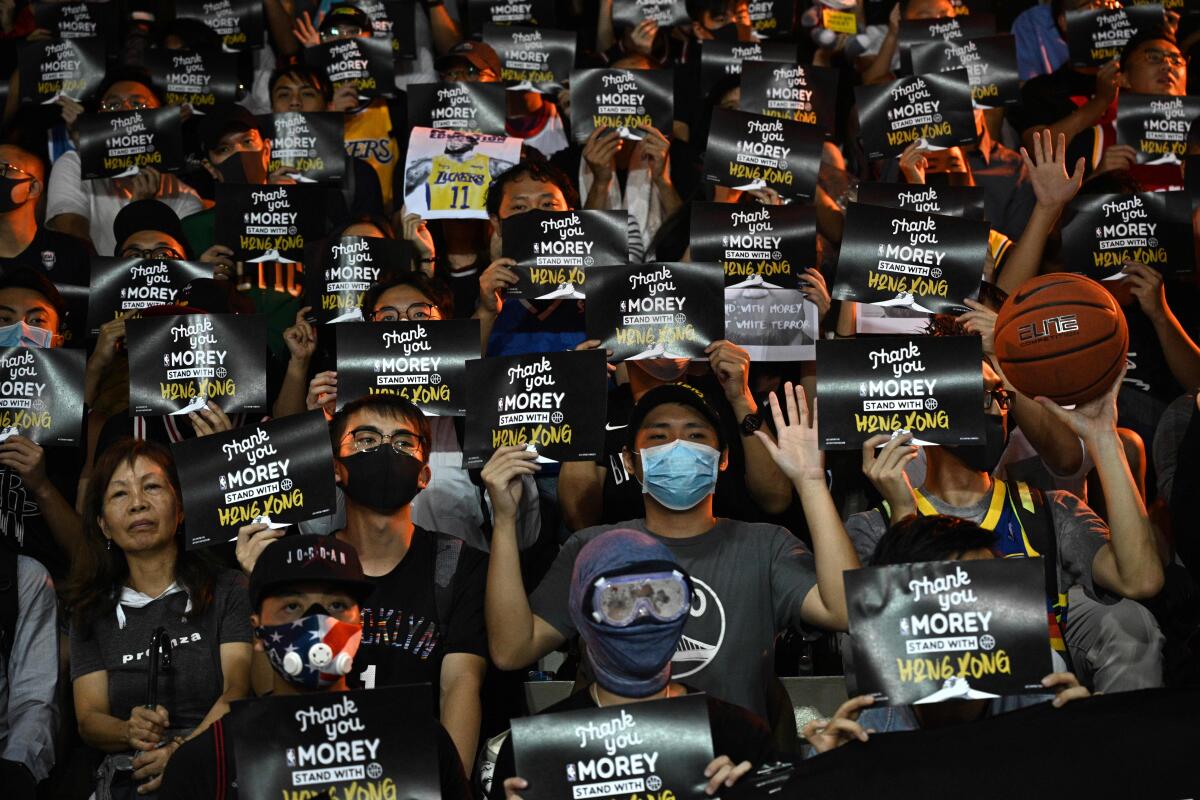
But the response to Morey’s tweet showed that many people were curious about what was being said on Twitter, which is blocked in China.
If NBA stars begin to raise concerns over the situation in Hong Kong, they may face harsh backlash prompted by Chinese authorities and could lose millions of dollars in endorsement deals from China. But by doing so, they could also give many basketball fans in China — people who do have access to information outside of the Great Firewall — more reasons to pay closer attention to the crisis in Hong Kong.
Many U.S. politicians have lost hope in engaging with China because previous efforts failed to lead China toward embracing universal values. But courage from NBA stars to speak up on democratic rights and freedom of expression could inspire basketball fans in China to explore alternative views.
Millions of basketball fans are lost in the darkness of nationalistic propaganda pushed by Chinese authorities. A few outspoken NBA stars could at least spark a ray of hope in some of them.
More to Read
Go beyond the scoreboard
Get the latest on L.A.'s teams in the daily Sports Report newsletter.
You may occasionally receive promotional content from the Los Angeles Times.
